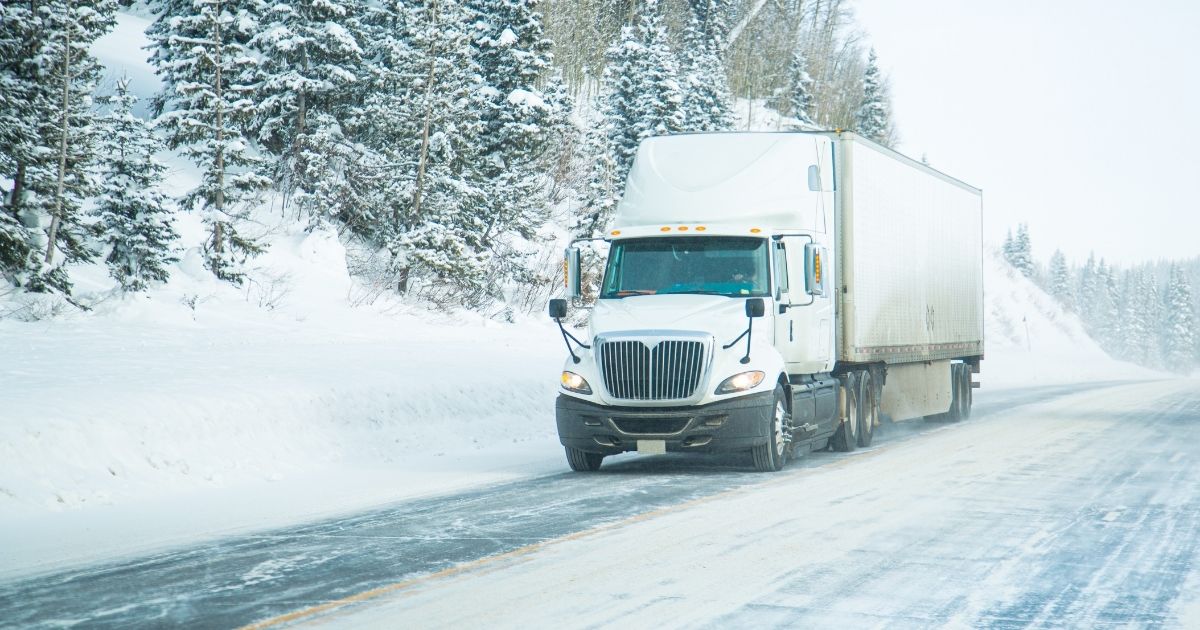One out of every four accidents in the U.S. is weather-related, leading to 673,000 injuries and 7,400 deaths every year. While spring and summer can have their share of rain and wind, in Ohio, most of the worst weather comes in the winter. Snow and ice can make for treacherous driving, with slippery roads, stalled traffic, and reduced visibility. Large trucks are harder to maneuver, so the chances of serious truck accidents are thought to be higher in the winter.
Unloaded tractor-trailers can weigh as much as 35,000 pounds, and fully-loaded ones can tip the scales at 80,000 pounds. Both are much heavier than the average passenger car. They need 20 to 40 percent more stopping distance than smaller vehicles, and truck drivers have less time to react to dangerous situations like black ice. When heavy trucks get into crashes with passenger vehicles, everyone in both vehicles can experience life-threatening or fatal injuries.
All automobiles have blind spots, but the ones on oversized trucks are bigger. These extend down both sides of the truck, 200 feet behind the trailer, and 20 feet in front of the cab. According to the Federal Motor Carrier Safety Administration, blind spots cause around 400,000 truck-related accidents each year in the U.S.
The other risk category is the drivers themselves. Without the proper training, truckers might not understand how to change their driving techniques in winter weather or know how to respond to a skid or other emergency. The chance of losing control increases in poor weather, so drivers must be prepared and be completely focused on these situations.
Drivers and/or the trucking companies they work for are responsible for vehicle maintenance, which might include changing out the tires, replacing the brakes, and keeping the wipers, mirrors, and lights clean. When maintenance fails to happen, accidents can occur.
Winter Weather Driving Hazards
Long-haul truckers who travel long distances often drive through different weather patterns, so it is not unusual for a semi-trailer to come from a warmer climate and then encounter ice and snow. A driver might not be ready for the change or might never have faced these kinds of driving conditions.
During a winter storm, road conditions deteriorate and visibility is reduced. After snow accumulates on roads, it starts to melt and becomes slush. When temperatures are fluctuating between freezing and above freezing, that accompanying freeze-thaw cycle makes roads extremely slippery. It is common for precipitation to switch back and forth from icy rain to sleet to snow. Wind can also cause problems. Sudden, strong gusts can push these heavy vehicles on roadways, and since they are tall and narrow, they are more vulnerable.
A tractor-trailer’s brakes can lock on slippery roads, making it impossible to stop in time; this is one of the main reasons for deadly skids. Roads are also more likely to form potholes in the winter, which are often not repaired for months. If potholes or large road debris are covered in snow, a truck driver might not see them and lose control of the vehicle.
It takes longer for truckers and staff members to load and unload cargo in poor weather conditions, and that affects driving schedules. Suppose a truck driver is rushing to meet a delivery deadline on a busy highway. Suddenly, it starts to rain and the temperature drops, causing a sheet of ice. Is that driver experienced enough to recognize the importance of slowing down?
How Should I Drive Around Large Trucks in Winter Weather?
While it is not possible to always avoid large trucks and unsafe drivers, you can drive defensively in the wintertime. If traveling can be delayed until conditions improve, listen to the weather reports, and wait until things clear up. Pay attention to traffic reports too, and adjust your route if you can. Taking less-traveled roads is not always the best idea since snow plows and salt trucks treat heavily-trafficked ones first.
It is never wise to speed, especially in winter. When you see a tractor-trailer on the road, do not speed up significantly to pass when the roads are slippery. Be patient, and wait to pass until it is safe. In stormy conditions or on icy roads, reduce your speed and avoid passing other vehicles. Remember, those large blind spots on trucks prevent drivers from seeing nearby vehicles.
Besides slowing down, you will want to increase your following distance. This is always the safest thing to do.
Who Is Responsible for a Truck Accident?
Truck accident survivors can face serious injuries, like broken bones, spinal cord and brain injuries, lacerations, and internal bleeding. After the injuries are examined and emergency treatment begins, learning who is responsible is the next priority. The driver might be an independent operator, so that person could shoulder some or all of the responsibility. Other potential liable parties include:
- The trucking company.
- Manufacturing companies.
- Truck repair and maintenance companies.
Truckers and their employers have a duty to ensure that the trucks are being safely operated and properly loaded; there are federal and state truck safety regulations. Truck drivers are supposed to follow these but are often pressured to work longer hours to make deliveries on time.
Truck accident survivors who make insurance claims to cover medical expenses and property damage might find that the amount of money they are offered is inadequate. Negotiating with them can be frustrating and fruitless. That is why many of these people turn to truck accident lawyers who can represent their interests and protect their rights.
Cincinnati Truck Accident Lawyers at the Wolterman Law Office Can Help You After a Winter-Related Truck Accident
Serious truck accidents happen all year round but can increase in the wintertime. If you have been injured in a truck accident and need legal help, speak with our Cincinnati truck accident lawyers at the Wolterman Law Office. For a free consultation, call us at 513-488-1135 or complete or online form. Located in Loveland, Ohio, we serve clients in Hamilton County, Fairfield, Norwood, and Forest Park.


